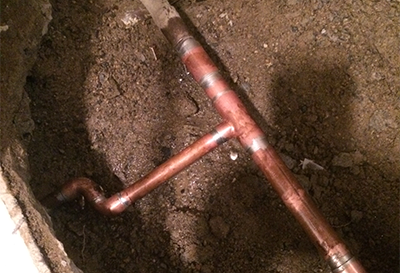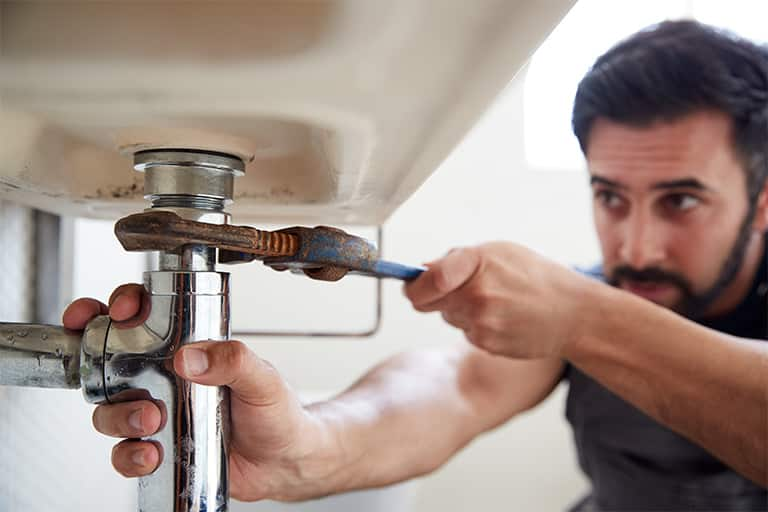Guide To Water Leak Detection In The House
Guide To Water Leak Detection In The House
Blog Article
They are making a number of great pointers relating to Top leak detection hacks in general in the content underneath.

Early detection of dripping water lines can mitigate a prospective disaster. Some small water leaks may not be visible.
1. Take A Look At the Water Meter
Every house has a water meter. Inspecting it is a surefire way that aids you uncover leakages. For starters, turn off all the water resources. Guarantee nobody will certainly purge, utilize the faucet, shower, run the cleaning machine or dish washer. From there, go to the meter as well as watch if it will certainly alter. Since nobody is using it, there must be no motions. That shows a fast-moving leakage if it moves. Furthermore, if you detect no changes, wait a hr or more as well as inspect back again. This indicates you might have a sluggish leakage that can even be below ground.
2. Inspect Water Usage
Examine your water bills and also track your water usage. As the one paying it, you should see if there are any disparities. If you spot sudden changes, regardless of your intake being the same, it means that you have leakages in your plumbing system. Bear in mind, your water expense must drop under the exact same range every month. A sudden spike in your bill shows a fast-moving leakage.
A stable increase every month, even with the very same behaviors, shows you have a sluggish leak that's additionally gradually rising. Call a plumber to completely examine your property, specifically if you feel a warm area on your floor with piping below.
3. Do a Food Coloring Examination
When it comes to water intake, 30% comes from bathrooms. If the shade in some way infiltrates your dish throughout that time without flushing, there's a leak in between the tank and bowl.
4. Asses Exterior Lines
Don't neglect to inspect your outside water lines as well. Test spigots by affixing a garden hose. Should water permeate out of the link, you have a loosened rubber gasket. Change this and make certain all links are limited. If you've got an automatic sprinkler, it will certainly assist get it professionally took a look at and also kept every year. One tiny leakage can lose lots of water and also increase your water bill.
5. Evaluate and also Evaluate the Scenario
Homeowners should make it a routine to check under the sink counters and also even inside cabinets for any kind of bad odor or mold growth. These 2 red flags indicate a leak so prompt attention is needed. Doing regular inspections, also bi-annually, can save you from a major problem.
Check for stainings as well as weakening as a lot of devices and also pipelines have a life expectations. If you think leaking water lines in your plumbing system, don't wait for it to escalate.
Early detection of leaking water lines can reduce a prospective disaster. Some small water leaks might not be noticeable. Inspecting it is a guaranteed method that assists you uncover leaks. One tiny leakage can waste heaps of water and also increase your water costs.
If you presume dripping water lines in your plumbing system, do not wait for it to escalate.
5 Signs that Your Home Has a Hidden Leak
Your water bill is unusually high without explanation
Generally, your water bill tends to stay consistent throughout the year as long as the same number of people live in your household year round. The bill might be higher during certain times of the year, such as summer, when your lawn may require more watering than it does in cooler months. However, if you notice a rise in your water bill that you can’t explain, it’s an indicator that there’s a hidden leak somewhere in your home.
You hear running water
One of the biggest signs that you have a water leak is the sound of rushing water when no plumbing fixtures are on and when no water-using appliances are running. If you hear running water in your walls when no water is being used anywhere in your home, locate your home’s main water shut-off valve, shut off your water supply, and contact a plumber at once.
Your home smells musty
Hidden leaks often occur in dark spaces, such as behind walls or under carpeting. Incidentally, darkness and moisture can create an ideal breeding environment for mold or mildew. If you start to smell mildew or the scent of rotting wood or stagnant water around your home, it’s a fair bet that a leak is the culprit.
You find wet spots around your home
The wet spots usually show up as moist areas in your carpeting. If your home has a basement level, puddles on the floor could indicate a slab leak. Outside, unexplainable puddles or lush, green patches in your yard often mean that there’s a leak in your sewer line or main water line.
You have stains, bubbles, or condensation on your walls/ceiling
Stains or condensation on your walls or ceiling are both major signs of a hidden leak. Also, drywall (AKA. sheetrock) is very absorbent, and as it takes on more water from a leak behind a wall, it will start to bubble, swell, or warp. If you see this happening in your home, don’t wait to contact a plumber before the water damage spreads.
https://www.ezflowplumbingaz.com/blog/2019/june/5-signs-that-your-home-has-a-hidden-leak/

Do you appreciate reading up on Leaking water lines? Make a review directly below. We will be delighted to know your feelings about this page. Hoping that you visit us again in the near future. Sharing is nice. Helping people is fun. Thank-you for going through it.
Report this page